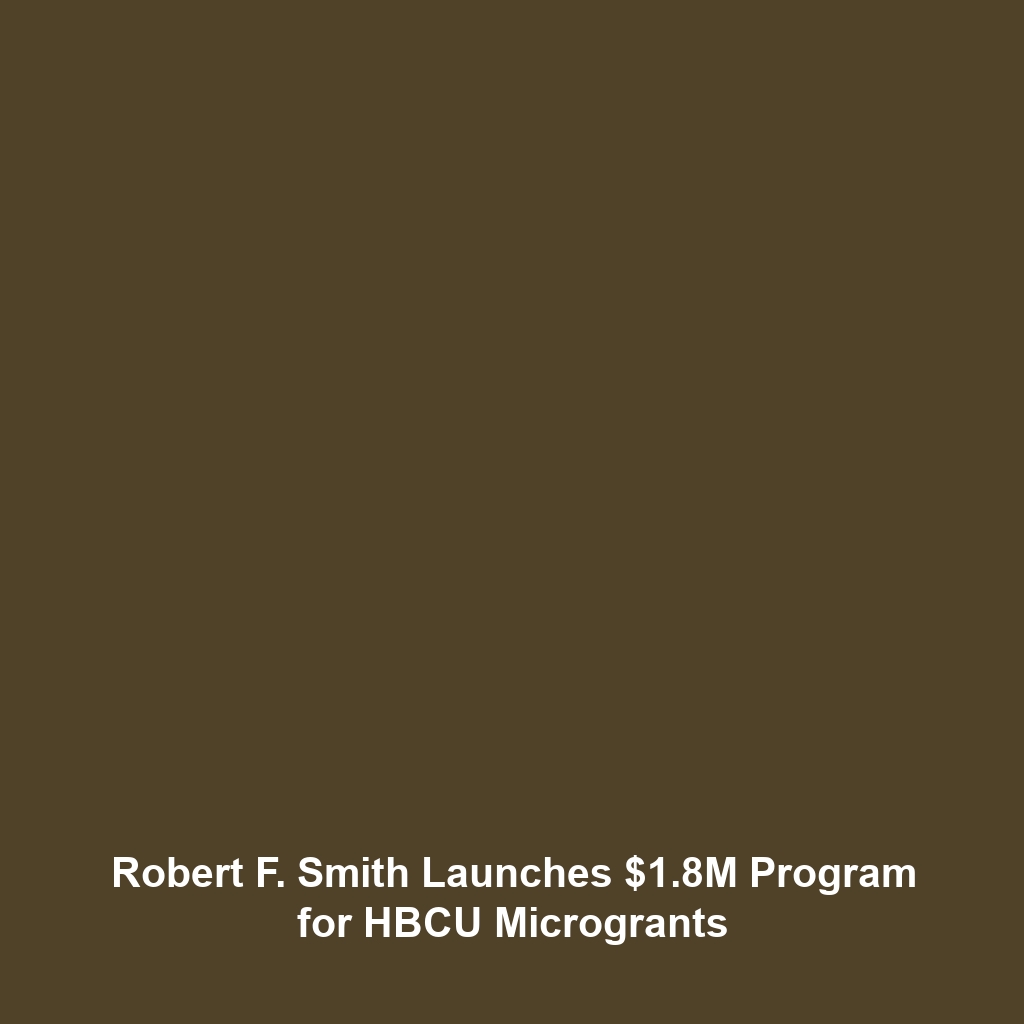Your cart is currently empty!
Tag: Robert F. Smith

Robert F. Smith Funds Mobile Unit for Prostate Health Awareness
Robert F. Smith Funds Mobile Unit for Prostate Health Awareness
Robert F. Smith Funds Mobile Unit for Prostate Health Awareness
Philanthropist and entrepreneur Robert F. Smith has pledged $3.8 million to fund a mobile health unit focusing on prostate care for Black men. This initiative aims to address significant healthcare disparities experienced by this demographic, which has among the highest rates of prostate cancer in the United States.
Addressing Health Disparities
Healthcare disparities in the United States are stark, particularly for Black men, who statistically face a higher likelihood of developing prostate cancer and experiencing poorer health outcomes. According to the American Cancer Society, Black men are 1.7 times more likely to die from prostate cancer than their white counterparts. Factors contributing to these disparities include lack of access to healthcare services, cultural stigmas, and inadequate health education.
The Mobile Health Unit Initiative
The mobile health unit funded by Smith will travel to underserved communities, providing free prostate health screenings, consultations, and educational resources. The project, led by the Prostate Health Education Network (PHEN), is set to launch in early 2024. It aims to remove barriers to access, bringing crucial health services directly to individuals in need.
“Screening is essential for early detection and treatment of prostate cancer,” said Dr. Charles Modlin, a urologist and advocate for prostate health. “This mobile unit will help to ensure that men who are at risk can receive potentially life-saving screenings.”
Community Engagement and Education
In addition to health screenings, the initiative will focus on educating the community about prostate health issues, potential symptoms, and when to seek medical advice. Local organizations will be engaged in outreach efforts to raise awareness and reduce stigma surrounding prostate examinations.
Smith’s contribution is part of a broader movement aimed at tackling systemic healthcare inequities faced by Black communities. By bringing essential health services directly to neighborhoods, the mobile unit seeks to create a more proactive approach to healthcare, where prevention is emphasized over reactive treatment.
Expert Perspectives
Numerous experts agree that initiatives like Smith’s are vital in combating healthcare disparities. Dr. Otis Brawley, a former chief medical and scientific officer for the American Cancer Society, stated, “Investments in mobile health units can significantly mitigate barriers to care. It is particularly important in addressing chronic conditions that disproportionately affect minority populations.”
Brawley also emphasized that public awareness campaigns are critical. “Education is as essential as access. Many men are unaware of their risk and may not know the importance of early detection.”
Smith’s Broader Impact
Robert F. Smith has a history of philanthropy focused on education, healthcare, and economic empowerment for Black Americans. His previous contributions include funding initiatives that support the education of underprivileged students and investments in community development projects.
The establishment of the mobile health unit fits into Smith’s vision of creating sustainable solutions that empower communities. “We cannot wait for the system to change; we must take proactive steps to ensure that our communities have the resources they need,” Smith remarked during a recent press conference.
The Future of Prostate Health in Black Communities
As the mobile health unit prepares to hit the roads, many anticipate its potential impact on community health. By addressing prostate health directly within communities, the initiative promises to foster a culture where health is prioritized, and preventive care becomes the norm rather than an afterthought.
Smith’s investment symbolizes a critical shift towards community-based healthcare, advocating for equity in health services. As awareness and education about prostate cancer proliferate through these efforts, the hope is that there will be a marked decrease in the stigma surrounding men’s health issues and an increase in the number of men seeking appropriate care.
Conclusion
Robert F. Smith’s $3.8 million pledge for a mobile health unit focused on prostate health represents a significant investment in addressing healthcare disparities faced by Black men. By prioritizing access to screenings and education, the initiative aims to create a healthier future for communities historically underserved in healthcare. As the project unfolds, stakeholders remain optimistic about its potential to change lives and perspectives on men’s health.
For more information on prostate health or to learn how to access services provided by the mobile unit, visit the Prostate Health Education Network’s website or contact local health agencies.


